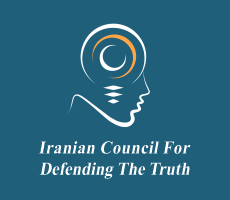It is important to distinguish the values of human rights, embraced by many individuals from the global South who helped author the Universal Declaration of Human Rights in 1948, and the far from perfect implementation of those values by the major powers. During the nineteenth and twentieth centuries, Western countries often used moral language as a way to rationalize imperialism, under the pretext of emancipating countries from their alleged backwardness. The British called this quest “the White Man’s Burden,” the French “a mission civilisatrice.” But many anti-colonial leaders also used human rights terminology to evict their colonizers, claiming in particular their right to self-determination. More recently, under the influence of neo-conservative advisors during the George W. Bush administration, the United States drew on human rights arguments to defend their alleged politics of emancipation against Afghanistan from the Taliban and Iraq from Saddam Hussein. While these countries were clearly oppressed by their leaders, the United State entered those conflicts in response to perceived national security threats and then to secure its own economic interests.
It is true that India, China, Roman Christendom, and Arab Islamic civilizations offered standards of tolerance applicable to others. Each showed the capacity for transcending the horizon of local and parochial thinking, and each exhibited a comprehensive set of standards that commanded the respect of others. Because our modern language of human rights originated in Europe and America, one needs to understand the story of their inception as embedded in the political, economic and technological innovations associated with the rise of the West and the relative decline of rival civilizations. Those innovations created the necessary conditions for the Enlightenment, which brought an end to European feudalism, stimulated the expansion of Western powers, and provided the foundation for the development of modern conceptions of human rights. In that sense, western articulations of human rights preceded those of other civilizations. Those ideas were adopted and built upon within the global South, then helped shape the struggle against colonialism and led to what is now a truly global dialogue on how to understand and implement human rights.
I was in West Asia during the Arab uprisings for a period of three years and had the great opportunity to teach human rights in the United Arab Emirates. My recent book with Yale University Press, The Levant Express: The Arab uprisings, Human Rights and the Future of the Middle East is the result of research and reflection focusing on this period and its aftermath. The enormous sense of optimism unleashed by the Arab Spring in 2011 soon gave way to widespread suffering and despair. Of many popular uprisings against autocratic regimes, Tunisia now stands alone as a weak beacon of hope for sustainable human rights progress. Libya is a failed state; Egypt returned to military dictatorship; the Persian Gulf regimes suppressed popular protests and tightened control; and Syria and Yemen are ravaged by civil war.
Yet in my own work, I challenge the widely shared pessimism among regional experts. The Levant Express, charts bold and realistic pathways for human rights progress in a region beset by political repression, economic distress, sectarian conflict, a refugee crisis and violence against women. With due attention to how patterns of revolution and counterrevolution play out in different societies and historical contexts, I draw attention to still submerged forces with strong potential to advance human rights. The Levant Express outlines a number of proposals that acknowledge persistent obstacles, but also represent hopeful signs and opportunities that generally fall below the radar of the media. One can observe the spread of public and virtual spaces for open discussion that could strengthen civil society and human rights; the yearning for a renewed Islamic Enlightenment, fostered by a network of commerce, which once made Islam’s Golden Age possible; the creation of green energy in Persian Gulf countries to reduce dependence on oil and diversify local economies; the revival of the tracks of the Hejaz Railway and beyond; the prospective strengthening of sub-regional security architectures—shaped by current geopolitical and economic realities—that can move West Asia to a more stable future; and the integration of women and ordinary people into the workforce. The possibilities are there and growing but have not yet generated the political will to break current deadlocks.
The Yemen conflict is rooted in the failure of a political transition to bring stability to Yemen following the Arab Uprising. The U.S., France and Britain supported a transition that had forced authoritarian Ali Abdullah Saleh to hand over power to his deputy Abdrabbu Mansour Hadi in 2011. Ansarollah opposed that political transition and a war began between the Saudi coalition backed by the U.N. Security Council (with the abstention of Russia) with particular support from these three Western powers. While those powers condemned Saudi air strikes responsible for large-scale civilian deaths, they remain supporters of the Saudis. From a realist perspective, they do so to protect their interests in the region linking the Red Sea to the Gulf of Aden. But from a human rights perspective, the West has tolerated a major humanitarian crisis in which over 100,000 people died and more than 85,000 starved. History won’t be kind to this enormous neglect.
The U.N. failed to stop the war for reasons explained above. Recently, however, Secretary General Antonio Guterres has attempted—in a perhaps too little too late effort—to broker a negotiated settlement. While these attempts to engage the warring parties are much needed, humanitarian and economic measures have become even more urgent, and the global health crisis brought up about COVID19 has worsened the already horrific conditions of civilians caught in the conflict.
The murder of George Floyd by police produced massive support for the Black Lives Matter movement, whose protests against racial injustice soon spread worldwide. There have been acts of violence, including by outside provocateurs, but overall, these mostly peaceful protests have galvanized support for civil rights in the United States. John Locke already told us in the seventeenth century that people should not dismiss rebellions, which result not from whims or against simple “mismanagement,” but from a “long train of abuses.” The use of federal forces in many American cities, which have provoked the violence they were allegedly sent to prevent, is a direct attack on the human right to peaceful protest. One may wonder whether George Floyd is another Mohamed Bouazizi, as both, in a different way, pleaded for their lives to the police, and both deaths were flashpoints for local protests against police brutality and economic injustice that soon became international. It is not surprising that the Black Lives Matter movement is echoed everywhere, including in West Asia, as people join against the excessive use of force, economic inequality, xenophobia, and racism —all, sadly, now further heightened by COVID-19. Whether in Portland, Paris or Teheran, the sense of injustice evoked by Floyd’s murder is still very much alive worldwide.

